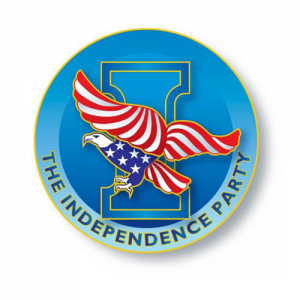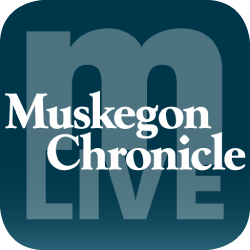
Name a problem — poverty, war, out-of-control spending. The political parties offer themselves as the solution to all of the above, and more. We respond by voting for first one party, then the other, then back again. We want to let the world know we are unhappy, but we haven’t yet developed the creative capacity to rearrange the world around us.
This seemingly eternal passivity is the mother’s milk of political partyism. No wonder the Republicans and Democrats and their auxiliaries — the tea parties, the unions, the media — must whip us into a frenzy. Whether we are Foxites, MSNBCists, bloggers or bored stiff, we’re now implored daily to get out to vote. Why? Not because voting develops our capacity to move the country forward. But because we must put one, or the other, or both, political parties in power — even though separately and together, they brought us to this anxious and crummy place.
This is American politics 101. The cure for whatever ails us is . . . more of the same. Public health advocates tell cautionary tales about diabetics who drink soda, people with high cholesterol who eat burgers and fries, and daughters of breast cancer victims who take hormones. But somehow, no one ever informs us that political parties — and the partisanship they spawn — have clogged our national arteries, fried our national brains and compromised the entire body politic.
But Americans are starting to move beyond the parties, even beyond partyism. That’s the dynamic story unfolding on the edges of the midterm battleground. And if that motion is cultivated by truly nonpartisan innovators, the political parties will have a comeuppance sooner than you might think. Contrary to what some analysts argue — that America is ripe for a third party — the direction Americans are really heading is away from parties altogether.
In June, a little-discussed proposition was passed by California voters with a winning margin of 8 percentage points. Proposition 14 abolished party primaries and unleashed an unpredictable group of voters onto the political playing field: 3.4 million independent voters who’ve declined to state a party allegiance. The result? Political parties will no longer control the first round of voting in that state.
Instead, the voters — all voters — will determine which two contenders, out of an unlimited field of variously aligned (and nonaligned) candidates, proceed to a final round. Denounced as a virtual sin against nature (echoes of the divine right of kings?), Prop 14 was excoriatedby all of California’s political parties, major and minor. But the voters, in their post-partisan wisdom, ignored the warnings. They’d simply had enough of party control.
California isn’t alone. In mid-October a federal court judge in Boise, Idaho, heard testimony in the case Republican Party of Idaho vs. Ysursa, a crucial test of the parties vs. the people. Idaho has an open primary system, where any voter can cast a ballot in all primary and general elections — voters simply register in Idaho, they do not affiliate with a political party.
The Republican Party sued Idaho Secretary of State Ben Ysursa to compel the state to close the primaries and institute partisan registration. There has been a great deal of litigation across the country on open primaries, but in Idaho, for the first time, the judge allowed independent voters (represented by my organization, IndependentVoting.org) to intervene in the litigation, bring their own counsel to the table, and argue that closing primaries grants the parties a political supremacy that gravely curtails the participation of nonpartisan voters, now 40 percent of the country.
The decision is expected in January, and the case is being watched by prominent constitutional law and party-rights experts. The implications of the case are potentially historic. It will delineate — even curtail — the power of political parties to exert their will over what should be a fundamentally public, not partisan, process.
On Tuesday, voters in Florida and California will get another bite at the nonpartisan apple. Redistricting-reform ballot initiatives are offering voters the opportunity to rein in the power of the parties when it comes to the all-important task of drawing district lines.
Earlier this year, here in New York — where we have closed primaries and a legislature legendary for its partisanship — there was an effort by the Independence Party of New York City, the government reform group Citizens Union and Mayor Michael Bloomberg to end party primaries in the Big Apple and shift to a nonpartisan election system. But the effort stalled.
Still, the party system in the Empire State is vulnerable. And the underlying trend away from partyism reasonably includes new parties popping up along the way. The Independence Party of New York City, which styles itself as an “anti-party” party, delivered three successive wins to Bloomberg, including a massive exodus of 47 percent of black voters from the Democratic ticket in 2005. On Tuesday, if a sufficient number of voters back the radical African-American City Councilman Charles Barron, his independent bid for governor could result in the creation of the Freedom Party, since 50,000 votes for governor on a party line establishes ballot status. While to date, white voters have shown more party mobility than black voters, we’re now seeing an increase in black voters drawn to ticket-splitting and other forms of defection from the Democratic Party.
These are strange political times. The pundits say this election is a referendum on President Barack Obama, but that doesn’t truly capture the dynamic. More precisely, Tuesday will be a referendum on Obama’s ability to navigate partisan waters. He was elected to change the political game, and he’s found that impossible to do: The parties won’t allow it. Still, the American people, courted, ignored and manipulated by the political parties, are beginning to identify them as the problem.
The parties are so deeply embedded in government and in the structure and design of America’s electoral process that they never have to justify their existence to voters. But at a moment when there is across-the-board dissatisfaction with partisanship, shouldn’t they have to? Shouldn’t we have the opportunity to create alternatives — nonpartisan (rather than bipartisan) governance, campaigns based on healthy debates about new ideas, unorthodox coalitions and an environment that fosters innovation?
Right now the parties stand in the way of all that. That’s why we’re seeing signs that the people want them to stand down. Look for those signs when the returns are in on Tuesday night. They’ll tell you more about where the country is headed than who controls Congress.
Read the original article here


